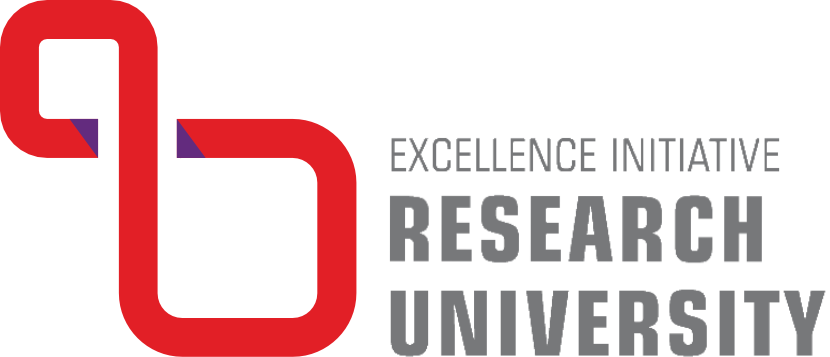Cognitive Futures of the Arts and Humanities – A Reassessment of Results and Articulating New Possibilities
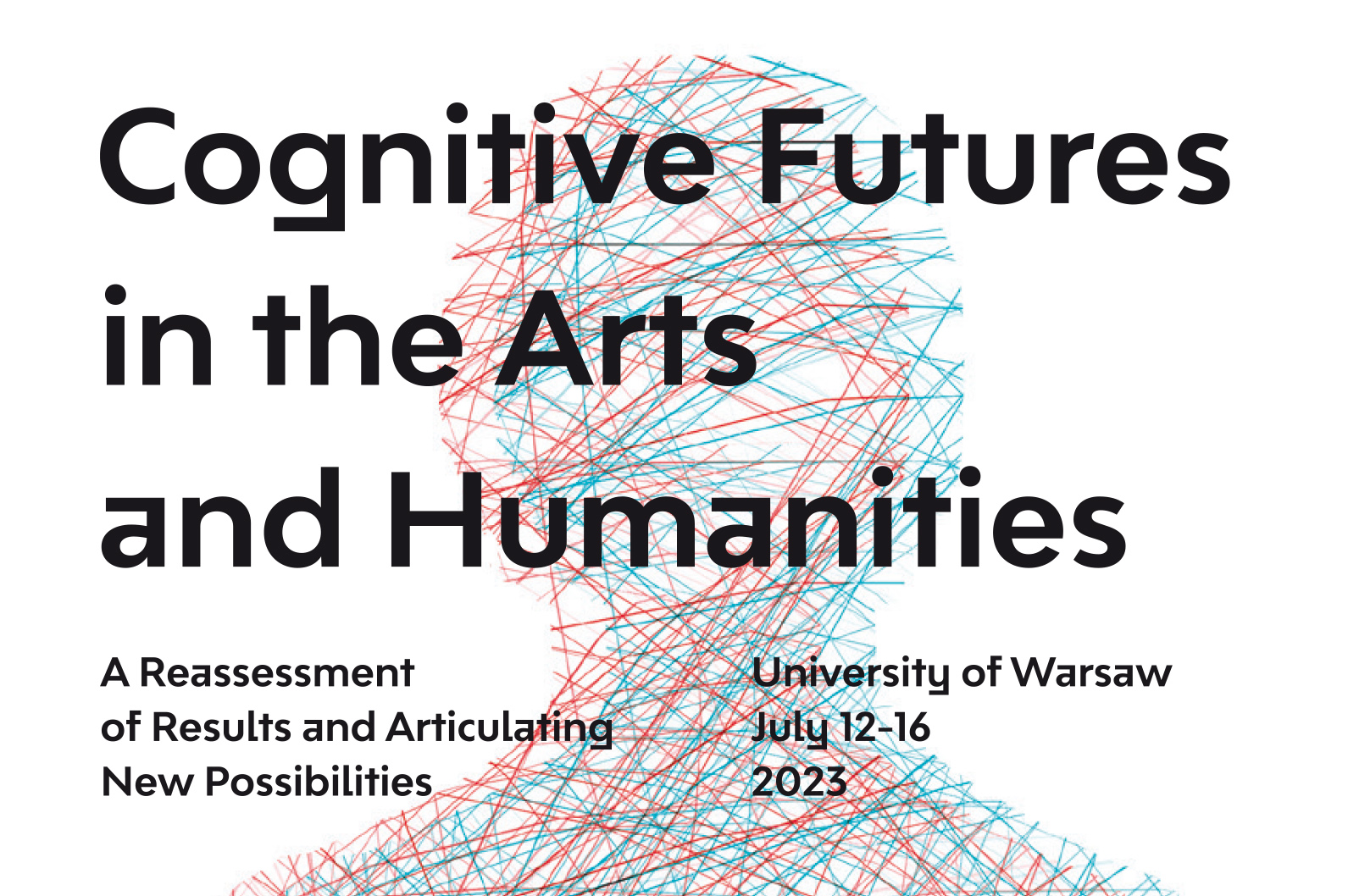
“The Cognitive Futures of the Arts and Humanities” is part of a network of conferences that have taken place previously at the Universities of Durham, Oxford, New York, and others. It brings together scholars and scientists using interdisciplinary methods to study art and various cultural practices.
This year’s conference will take place at the University of Warsaw, between 12-16 July, 2023 and its title is:
“Cognitive Approaches to Art: A Reassessment of Results and Articulating New Possibilities”.
Organizers
Yanna Popova
(Centre Q: Centre for Research on Culture, Language, and Mind)
in association with
Agnieszka Libura, Joanna Jurewicz
Wednesday, July 12
17:30-19:30
Registration and Welcome Reception: The Column Hall, History Faculty, Main Campus
Thursday, July 13
09:00-09:45
Registration: Old Library, BUW, Main Campus
09:45-10:00
Welcome Address, Main Hall
10:00-11:00
Keynote: Professor Ellen Dissanayake
11:00-11:30
Coffee Break
11:30-13:00
Parallel Sessions 1A and 1B
13:00-14:30
Lunch: The Column Hall, History Faculty
14:30-16:00
Parallel Sessions 2A and 2B
16:00-16:30
Coffee Break
16:30-18:00
Parallel Sessions 3A and 3B
—
Free Time in the Evening
Friday, July 14
09:30-10:30
Keynote: Professor Tomasz Kubikowski
10:30-11:00
Coffee Break
11:00-13:00
Parallel Sessions 4A and 4B
13:00-14:30
Lunch: The Column Hall, History Faculty
14:30-16:00
Parallel Sessions 5A and 5B
16:00-16:30
Coffee Break
16:30-17:30
Keynote: Professor Merlin Donald
—
Free Time in the Evening
Saturday, July 15
09:30-10:30
Keynote: Professor Alva Noe
10:30-11:00
Coffee Break
11:00-13:00
Parallel Sessions 6A and 6B
13:00-14:30
Lunch: The Column Hall, History Faculty
14:30-16:00
Parallel Sessions 7A and 7B
16:00-16:30
Coffee Break
16:30-18:00
Parallel Sessions 8A and 8B
18:00-18:15
Closing Remarks and Announcements
20:00
Conference dinner, The Ball Room, Tyszkiewich-Potocki Palace, Main campus (dinner paid separately)

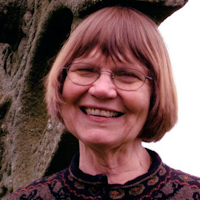
Ellen Dissanayake (University of Washington, Seattle)
A Naturalist Aesthetics: Art from the Bottom Up
Philosophers of art and aesthetics have more or less stopped trying to define their subject. There is no agreement on answers to questions like “What is art?,” “What is the difference between art and non-art?,” or “Is art necessary?” These questions all begin from the unexamined assumption that art is a “thing”: a painting or sculpture, a musical score or performance, a poem, a building, a dance. I can answer these questions using a new perspective anchored in evolutionary biology and ethology that considers art as something that all humans do—an evolved predisposition, “a behavior of making ordinary reality extraordinary (or ‘special’).” For this universally observable behavior, I have coined the term “artification.”
Like the summary of any complex new concept, this approach may sound simplistic, naïve, or even suspect, as can the proposed biological source of this behavior, which I suggest arose in ancestral mother-infant interaction. To support this “Artification Hypothesis,” I have over five decades integrated information from a number of fields (e.g., paleoarchaeology, neuroscience, developmental and cognitive psychology, physical and cultural anthropology) with knowledge about human arts and ideas about arts from dozens of modern, traditional and, as far as possible, ancestral societies. I also propose a suite of five “aesthetic operations,” based in ritualized behaviors of other animals, that artifiers use in their work and that humans naturally are predisposed to respond to.
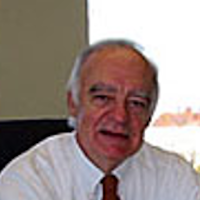
Merlin Donald (Queen’s University, Kingston)
Art, the Brain, and the Evolution of the Human Mind
Art is a cognitive product of the “middle kingdom,” namely the place where brain and culture interact. It is a product of the “higher” functions of the mind, which refers to functions that have access to basic functions like sensation and attention but are driven by goals and insights that are more abstract and contextual in nature. Thus, an image created by Warhol is built from basic visual features, but the idea driving the image refers to abstract social conditions many steps removed from the colors, edges, and lines defining the image. The “art” in the image has very little to do with the basic features from which it is constructed. In that sense, art usually engages mandatory features in some way, and the physiological responses of the brain are necessarily triggered by those features, but these do not define the image as art. Art only exists in our mental universe due to cultural norms and expectations which both viewer and artist assimilate from personal experience.
Moreover, art is an identifiably and uniquely human feature. It is found nowhere else in the Biosphere. A reductive approach that is not built upon this fact will inevitably fail as a theory, or even a subsidiary theory, of art.
A three-stage co-evolutionary theory of the genesis of art is reviewed here, in which the interaction between brain evolution, cognition and culture are examined in relation to their historical appearance of various artistic forms in human prehistory and history. This is the unique story of a primate brain’s evolutionary transformation. The primate evolved originally in a standard mammalian ecological framework, but it has gradually clawed its way out of its original immersion in nature, by creating a representational universe which eventually broke free of nature, and that demanded a radical shift in our species’ adaptive obligations, away from nature and toward to a new set of standards whose demands are often contrary to the natural survival demands originally imposed upon our species.
The growth of this novel representational universe can be defined by two opposing forces that are inextricably related to each other: technology and art. These two forces, very broadly defined, are useful in an approach that is both cross-cultural and time-bound, or historical.
The first stage of human cognitive evolution was triggered over three million years ago by a revolutionary change in the motor systems of the brain, through which hominins evolved a new purpose for movement: the abstract representation of ideas, and the construction of a public means of sharing mind. This development gradually imposed cascading levels of new cultural-cognitive exchange systems that drove the evolution of new media for expanding the hominin representational universe. The three proposed stages coincided with the emergence of specific kinds of art, including many forms which reflect the simultaneous co-existence and interaction of several stages at the same time. These will be reviewed.
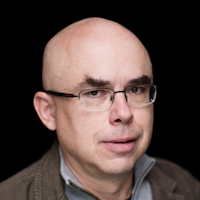
Tomasz Kubikowski (Theatre Academy, Warsaw)
‘Thou, Nature, art my goddess.’
Theatre between instruction and selection
The paper summarises twenty years of my reflection on the notion of ‘performance’, explains the definition of performance I have proposed, and presents some consequences of acknowledging this definition.
I formulated fundamental insights in The Principle of the Nibelung (2004). There, I mainly referred to the concepts of Gerald Edelman, with particular stress on his opposing recognition against cognition, degeneracy against optimisation, and selection against instruction, in the light of the Darwinian theory as Edelman understood it and employed it in his research. I found that Edelmanian principles on which consciousness operated can be well interpreted within the framework of the broad definition of performance proposed by Richard Bauman. Hence comes my understanding of performance as the clash of selection processes with the processes of instruction.
This places performance as the modus operandi of all the creatures endowed with consciousness, striving to survive. As performance precedes any discourse, it cannot be adequately defined or described. We can only try to simulate it, and dramatic theatre appears as a particular means of such simulation, embedding performance within a performance, or ‘squaring performance.’
I apply my theoretical findings, locating these hidden mechanisms in the work of theatre, recorded in its scenarios (like King Lear) or its techniques and skills (like in Stanislavsky’s System). Finally, I give a short glimpse at the topics on which I have worked recently.
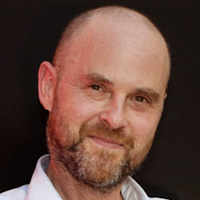
Alva Noe (University of California, Berkeley)
Perception as a relationship
In this paper I explore the idea that perception is a love-like relationship with people, situations, and things. Love is an epistemic emotion, and perceiving a manner of concern, or so I argue. I show how such an approach opens up new ways of making sense of long-standing puzzles about perception. I also explore the ways this idea grows naturally out of “the enactive approach to perception,” as I have developed this in previous work (e.g. Action in Perception, 2004; Varieties of Presence, 2012; Strange Tools 2015); I argue that a “relationship” conception has advantages over what is sometimes called “the relational view” (Campbell, 2002).

These are all hotels in the vicinity of the conference venue, which is the main campus of the University of Warsaw, situated on Krakowskie Przedmieście street in the heart of the city centre.
* * *
One of the closest hotels (12 min walk) within the middle range category is Gomada Centrum ***/****: www.gromada.pl
There is a discount rate for conference attendees and you will need to quote the password: centreq when booking. You can also use the link: https://booking.profitroom.com/pl/hotelgromadadomchlopa/details/offer/414326?code=centreq&no-cache=¤cy=PLN quoting the same password.
Please note that there will be building work going on outside this hotel in July between the hours of 9am till 5 pm during the week. Also note that there are two discounted rates quoted in the offer: for the days 12-13 July and 14-15 July. This is due to the fact that Pink is having a concert in Warsaw on July 16 so a lot of the hotels are beginning to get booked. I also advise booking a business class (****) room in this hotel as this type of room has air conditioning and it can get very hot in July in Warsaw.
* * *
For other hotels, please see the list below and use password: Centre Q when booking
Sofitel Warsaw Victoria *****
https://all.accor.com/hotel/3378/index.pl.shtml
Novotel Warszawa Centrum ****
https://all.accor.com/hotel/3383/index.pl.shtml
Hotel Mercure Grand ****
https://all.accor.com/hotel/3384/index.pl.shtml
* * *
For Motel One which is within 10 min walk from the conference venue, please mail your reservation to res1.warchop@motel-one.com which will be open till 31 May 2023, quoting password: Centre Q
Motel One ***
https://www.motel-one.com/pl/hotele/warszawa/hotel-warszawa-chopin/
As a conference attendee you will receive at least 10-15% discount on the prices of the hotels, but always, please, check other special offers for the days you are booking.

1. Registration
We look forward to welcoming you to the international Cognitive Futures in the Arts and Humanities 2023 Conference in Warsaw.
Conference registration begins from 5.30 pm on Wednesday 12 July. Please go to the big gate at the entrance to the main campus of the University of Warsaw on Krakowskie Przedmieście 26-28, Warsaw 00-927 (19). Walk straight on until you reach the Faculty of History on the right (14), which will be signposted. The registration and welcome reception will take place in the Column Hall (Sala Kolumnowa) on the ground floor. On Thursday, Friday, and Saturday, registration will be in the building of the Old University Library – main campus (Stary BUW) (7) between 8-9am and during the breaks. We anticipate a crowd on Monday morning. Please arrive as early as you can.
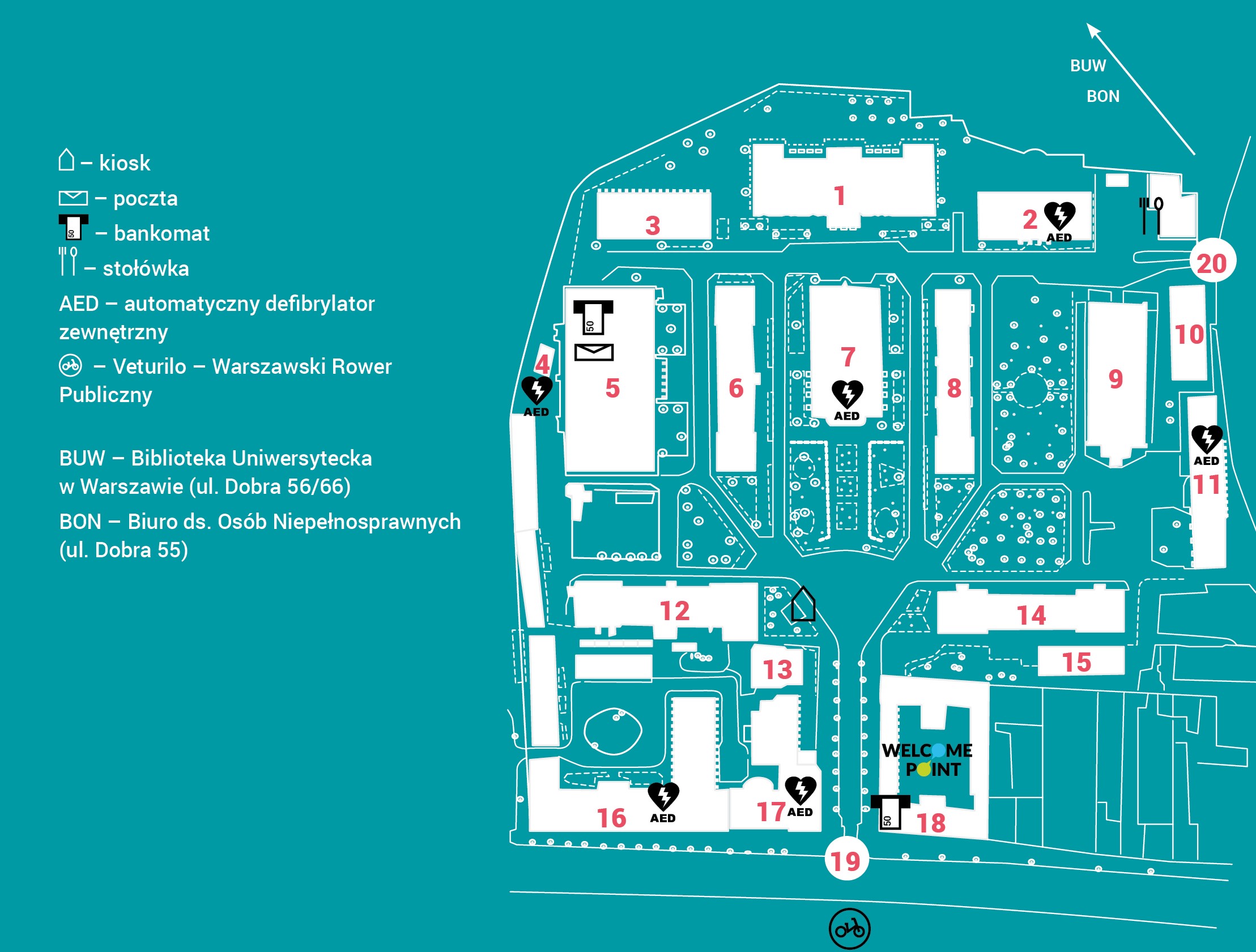 https://www.uw.edu.pl/przewodnik-2020/uniwersyteckie-mapy/
https://www.uw.edu.pl/przewodnik-2020/uniwersyteckie-mapy/
2. Address and contact details
The address of the main campus is:
26-29 Krakowskie Przedmieście
Warszawa 00-927
Poland
For directions or other questions regarding your arrival, please email: cognitivefutures2023@uw.edu.pl or centrumq@uw.edu.pl or call
3. Arriving by air and by bus
If arriving at Warsaw Airport, you can take a direct bus, number 175, which stops directly in front of the University main campus (“University” bus stop). Most of the recommended hotels are situated within a short walking distance from there.
4. Parking if arriving by car
There is no parking available at the main campus. If you arrive by car, we suggest you ask your hotel for parking availability.
5. Book Display
Speakers and Chairs are invited to bring to the conference any copies of books, articles and/or chapters on cognitive themes that they’ve published (or are about to publish, proofs welcome). We shall have a table set up to display these.

Places worth visiting and restaurants
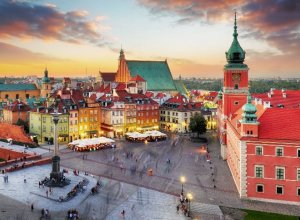
Guided Walking Tour of Warsaw Old Town
morning of July 16th (included in the conference fee)
Warsaw’s Old Town delights visitors with its colourful tenement houses and the unique atmosphere of its narrow streets. It has been entered on the UNESCO World Heritage list.
You will be able to see the Royal Castle, where the Constitution of 3 May was passed – the first in Europe. On Castle Square stands the column of King Sigismund III Vasa, who in the 16th century moved the capital of Poland from Krakow to Warsaw. The Old Town Square is the oldest and one of the most charming squares in Warsaw. It was laid out at the turn of the thirteenth and fourteenth centuries, destroyed after the WWII and completely rebuilt. In the middle of the square stands a statue of the Warsaw Mermaid, the emblem and guardian of the city.
You can also see the barbican and the bell on Kanonia street, take a stroll along the old city walls and take a photo of the Vistula from the observation point at Gnojna Góra. The cathedral houses the tombs of the medieval Mazovian princes, the last king of Poland, Stanisław August Poniatowski, and the outstanding pianist and politician Ignacy Jan Paderewski.
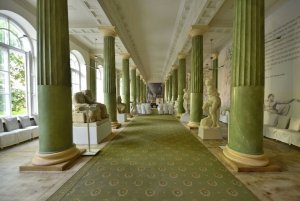
Drinks Reception in the Column Hall (Main University Campus)
July 12th at 17:30 (included in the conference fee)
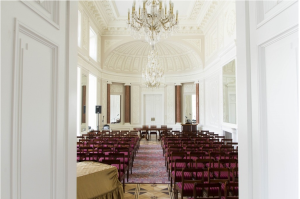
Conference dinner (The Ball Room, Tyszkiewich-Potocki Palace, Main campus)
July 15th (not included in the conference fee)
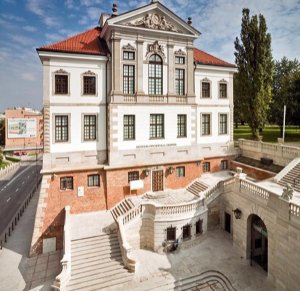
Visits to the Chopin Museum
morning of July 16th (not included in the conference fee)
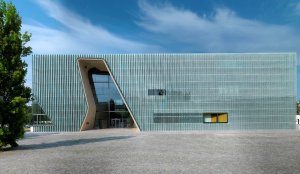
Visit to the Polin Museum of Jewish History
morning of July 16th (not included in the conference fee)

The conference registration will take place between 1 June and 5 July 2023.
The registration fee includes welcome reception on July 12th, coffee breaks and lunches on July 13th, 14th and 15th and a guided walking tour of Warsaw Old town on the morning of July 16th, as well as all conference materials. The conference dinner on July 15th is payable separately, as are the visits to the Chopin Museum or the Polin Museum of Jewish History on July 16th.
The registration fee is as follows:
- registration fee
- early bird (registration from June 1st to June 25th) — 750 PLN
- standard (registration from June 26th to July 5th) — 880 PLN
- Conference dinner (registration from June 1st to July 5th) — 180 PLN
- Guided Tour – Old Town (registration from June 1st to July 5th) — Free
- Visit to the Chopin Museum (registration from June 1st to July 5th) — 50 PLN
- Visit to Polin Museum of Jewish History (registration from June 1st to July 5th) — 50 PLN


